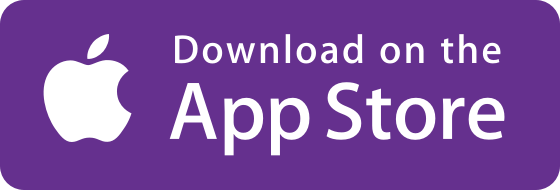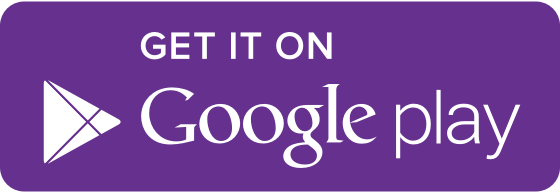Edoardo Montenegro shares some notes on a recent HundrED report about the Finnish capital.
In the recent months I have shared my travel impressions on the Finnish cultural and educational system, from libraries to schools, and on various events and panels that I was lucky enough to join. This time I am going to dwell, in particular, on the City of Helsinki and its school system, thanks to Forerunners. Improving education in Helsinki.
The City of Helsinki is in fact acknowledged worldwide as a forerunner in education and this report by Noora Ruoho, Lasse Leponiemi and Ilona Taimela from HundrED fully demonstrates it by describing the key elements that enable the Finnish capital to improve education and learning.
Operating models and solutions in Helsinki
The HundrED report identifies ten operating models and solutions that are site-specific of the Helsinki environment, but are suitable to be replicated or scaled elsewhere.
1. Phenomenon-based learning
Students in Helsinki are encouraged to adopt a multifaceted and multidisciplinary approach, by examining phenomena through collaboration and personal investigation, while their experience is designed to be fully learner-centered.
2. Learners as decision-makers
Learners in Helsinki are asked to have their say and to be active in organizing school operations and development. Education providers are encouraged by law to involve students in decision-making. Democracy is a matter-of-fact experience.
3. Language learning
From the first grade of primary school, students in Helsinki decide a foreign language to study between English, Spanish, French, Swedish, German, Northern Sami, Russian, Estonian or Chinese. Two more foreign languages may be added later on.
4. Local day care and school
In Helsinki, children receive support and services as close to home as possible: at school they find nurses, social workers and psychologists. The base principle here is that each student has the right to participate and make friends in the neighbourhood.
5. Expert and tutor teachers
Teachers are not left alone in Helsinki. Teams of experts and tutors help them to implement the best operating models and innovations as well as to develop their competences. School reform is continuous and teachers’ education is well funded.
6. Smart learning environments
In order to learn more and to be at the pace of innovation, students in Helsinki are granted access to technology, digital materials and learning facilities supporting their work. At the same time, they are asked to document their learning on digital platforms.
7. Entrepreneurial and work life skills
As from 6th grade, students have the opportunity to learn entrepreneurial skills thanks to joint projects between companies, schools and educational institutions, while later on – from 8th grade – they work for a few weeks with a company.
8. Whole city as a learning environment
The city offers free transport to students and teachers during school hours. Work and learning outside school is enabled by digital applications, devices and platforms. Helsinki, where nature is dominant, is seen as an outdoor learning environment.
9. Design and invention pedagogy
In Helsinki, learners are asked to come up with new solutions and face problems through design and invention pedagogy, which are used in handicrafts, arts and STEAM workshops, as well as in multidisciplinary learning activities.
10. Learners well-being and healthcare services
Having a holistic approach to students, schools in Helsinki take care of their physical, mental and social well-being and growth. Thus, daily exercises and meals are also meant to prevent bullying and social exclusion.
The Finnish educational system
The Finnish educational system is open and, as the HundrED report highlights, it is based on the principle that there are no dead ends. At any age in their life, regardless of their cultural or social background, students can move freely from one kind of school to another, switching as they wish between higher and vocational education. This has a strong implication, indeed, because it also means that in Finnish society manual work and intellectual activities have the same dignity.
“Following comprehensive school, students in upper secondary education can select between general upper secondary school or vocational education and training (VET), both of which usually take around three years. It is also possible to complete more than one set of secondary level qualifications at a time. This is known as a double qualification, the most common of which is a combination of vocational education and training and general upper secondary school.”
Between kindergarten and primary school, at the age of 6, Finnish children attend a year of pre-primary education, whose specific aim is to “boost the child’s social skills and self-esteem, particularly through play and a positive atmosphere”. Games and free time to play are actually key in early childhood education, because each student is acknowledged the right to learn by having fun and playing an active role.
As for compulsory education, in Finland it begins when students turn seven and ends when the basic education syllabus has been completed or when ten years have elapsed, even though it is usually completed in nine years. What makes the Finnish school very specific is local independence: as HundrED’s report remarks, in 2018 95% of basic education was organized by municipalities, while the remaining 5% of providers received government grants based on the number of students. National curricula set the general framework and are seen as milestones by both teachers and school principals, but they are integrated locally. Teachers are individually responsible and usually enjoy a very high level of independence and autonomy. They have a pedagogy background and manyfold opportunities to keep on studying and improving their skills throughout their entire career.
This deep focus on pedagogy is also key to understand what makes Helsinki’s schools so effective and forward-looking: “Helsinki’s urban strategy has identified various areas for learning and competence development. The strategy focuses on pedagogically versatile learning opportunities, guaranteed through continuous development of pedagogy, learning environments, learning processes and competencies. This ensures that education in Finland is modern and versatile, makes use of digital tools and meets the future needs of working life. Pedagogy emphasizes learners’ strengths.”
To sum up what makes Helsinki’s schools a world benchmark, we should probably conclude this is the result of three factors: 1) a clear political long-term strategy focusing on education as a key factor of growth and well-being, both at a national and at a local level; 2) an efficient combination between national curricula and local integrations, with teachers having a sound pedagogy background; 3) an innovative and entrepreneurial approach to the role of school in society, preparing children for a better future rather than celebrating the past itself. Needless to say, the HundrED report highlights elements that should become key benchmarks for governments and policy-makers all over Europe and the world.
Edoardo Montenegro
Betwyll co-founder and HundrED ambassador for Italy


